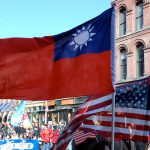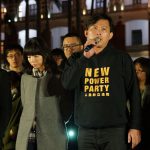
Disenchantment in Taiwan
by Mark Harrison

WHEN TAIWAN’S President Tsai Ing-wen 蔡英文 came to power in a landslide election victory in January 2016, her supporters viewed her victory as expressing a truth about Taiwan being a progressive society. Tsai campaigned in support of indigenous reconciliation, same-sex marriage, and social equality. She had addressed her campaign rhetoric at Taiwan’s young people and spoken of economic opportunities in a globalised economy. Tsai’s win also went against the tide of right-wing populism that has beset many democratic polities. For her supporters, especially young urban professionals, Tsai’s win signalled the indelible commitment within Taiwanese society to social progress and to coming to terms with Taiwan’s authoritarian past through openness and dialogue.



